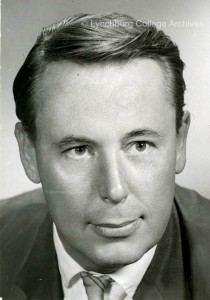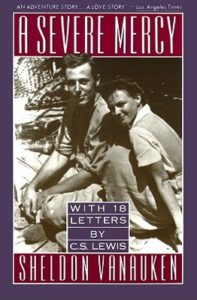 One of the strongest friendships C. S. Lewis forged with an American was with Sheldon Vanauken, who studied at Oxford in the early 1950s. Neither he nor his wife, Davy, were Christians when they arrived, but after reading some Lewis, and via letters with that famous author, they both were converted while in residence there.
One of the strongest friendships C. S. Lewis forged with an American was with Sheldon Vanauken, who studied at Oxford in the early 1950s. Neither he nor his wife, Davy, were Christians when they arrived, but after reading some Lewis, and via letters with that famous author, they both were converted while in residence there.
The connection became more than that of an author and correspondent. They met regularly; Lewis even came to their apartment for fellowship. When their time in Oxford ended, and Vanauken returned to America to a professorship of his own, that relationship didn’t end; in fact, it deepened due to a tragic circumstance.
Just a couple of years later, Davy was diagnosed with a fatal illness that took her life a few months afterward. Lewis’s letters to Vanauken during her illness and afterward helped shape the latter’s thinking toward the trials of life and how to face the death of a loved one.
One of the letters Vanuaken wrote to Lewis seemed to hint at suicide as a possible answer for the pain he was experiencing. Vanauken also confessed in the letter that he and Davy had not sought to have children because they had been concerned that a child would damage their own closeness as a couple.
Lewis took Vanauken to task on both of those points. How did Vanuaken know that his wife, after her conversion, still maintained the attitude of not having children, he queried. Perhaps he had denied her something she truly desired. As for the question of suicide, he was adamant that it would be folly to think he would be reunited with her in that way: “You might be digging an eternally unbridgeable chasm. Disobedience is not the way to get nearer to the obedient,” he admonished.
 That letter also is the source of a phrase that Vanauken later used as the title for his book: a severe mercy. Here’s how Lewis put it, in context:
That letter also is the source of a phrase that Vanauken later used as the title for his book: a severe mercy. Here’s how Lewis put it, in context:
One way or another the thing had to die. Perpetual springtime is not allowed. You were not cutting the wood of life according to the grain. . . . You have been treated with a severe mercy.
You have been brought to see . . . that you were jealous of God. And from us you have been led back to us and God: it remains to go on to God and us.
Vanauken did not recoil from Lewis’s honesty; rather, he embraced it. The quote I have used at the beginning of my new book, America Discovers C. S. Lewis, that I thought best epitomized Lewis’s American relationships comes from Vanuaken’s response to this letter in his own book:
It was a very deep friendship on my part: no man ever did so much to shape my mind, quite aside from Christianity, which of course shaped my whole life. I have never loved a man more. And I must believe, from things he said and wrote to me, that he felt both friendship and affection for me. . . . After this severe and splendid letter, I loved Lewis like a brother. A brother and father combined.
Lewis was like a brother and/or a father to many of his American correspondents. Reading through his letters is like feasting on a rare combination of honesty, wisdom, and humility.
